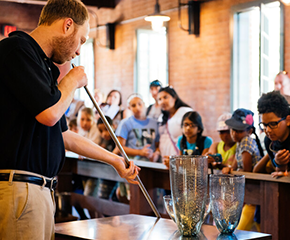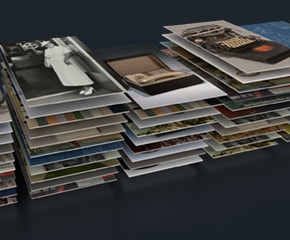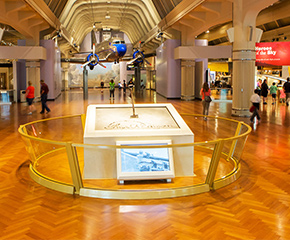1899 Locomobile Runabout
Add to SetSummary
This steam-powered runabout, by Locomobile, was built from designs by twin brothers F.E. and F.O. Stanley. These early vehicles were fast, cheap, and relatively uncomplicated. However, fuel needs, excessive water consumption, and other inherent problems dogged the lightweight steamer. In 1902 Locomobile began production of a gasoline internal combustion engine. The company phased out its steam-powered vehicles in 1904.
This steam-powered runabout, by Locomobile, was built from designs by twin brothers F.E. and F.O. Stanley. These early vehicles were fast, cheap, and relatively uncomplicated. However, fuel needs, excessive water consumption, and other inherent problems dogged the lightweight steamer. In 1902 Locomobile began production of a gasoline internal combustion engine. The company phased out its steam-powered vehicles in 1904.
Artifact
Automobile
Date Made
1899
Creators
Stanley, Francis Edgar, 1849-1918
Stanley, Freelan Oscar, 1849-1940
Place of Creation
United States, Massachusetts, Newton
United States, Massachusetts, Watertown
Creator Notes
Designed by the Stanley Brothers, Francis and Freelan in Newton, Massachusetts and produced in Watertown, Massachusetts by Locomobile Company of America.
Keywords

On Exhibit
at Henry Ford Museum in Driving America
Object ID
86.141.1
Credit
From the Collections of The Henry Ford.
Material
Metal
Wood (Plant material)
Rubber (Material)
Color
Red
Green
White (Color)
Specifications
Make & Model: 1899 Locomobile runabout
Maker: Locomobile Company of America, Watertown, Massachusetts
Engine: 2-cylinder steam, double acting, 2.5 inch bore x 3.5 inch stroke
Height: 72 inches
Wheelbase: 58 inches
Width: 63 inches
Overall length: 114.5 inches
Weight: 700 pounds
Horsepower: 4 at 150 psi
Pounds per horsepower: 175
Price: $600
Average 1899 wage: $428 per year
Time you'd work to buy this car: about 1 year, 5 months





